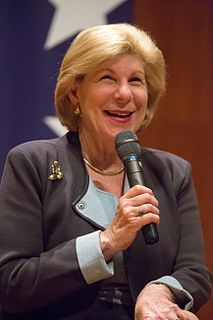A Quote by Baron de Montesquieu
In every government there are three sorts of power: the legislative; the executive in respect to things dependent on the law of nations; and the executive in regard to matters that depend on the civil law.
Related Quotes
The constitution has divided the powers of government into three branches, Legislative, Executive and Judiciary, lodging each with a distinct magistracy. The Legislative it has given completely to the Senate and House of Representatives. It has declared that the Executive powers shall be vested in the President, submitting special articles of it to a negative by the Senate, and it has vested the Judiciary power in the courts of justice, with certain exceptions also in favor of the Senate.
The dignity and stability of government in all its branches, the morals of the people, and every blessing of society depend so much upon an upright and skillful administration of justice, that the judicial power ought to be distinct from both the legislative and executive, and independent upon both, that so it may be a check upon both, as both should be checks upon that.
The whole body of the nation is the sovereign legislative, judiciary, and executive power for itself. The inconvenience of meeting to exercise these powers in person, and their inaptitude to exercise them, induce them to appoint special organs to declare their legislative will, to judge and to execute it. It is the will of the nation which makes the law obligatory.
The Obama administration has abused the executive power, enforcing Common Core on the states. It has used race to the top fans to effectively blackmail and force the states to adapt Common Core. But in one silver lining of Obama abusing executive power is that everything done with executive power can be undone with executive power and I intend to do that.
People assume that the executive branch has more power than it actually has. Only the legislative branch can create the laws; the executive branch cannot create the laws. So, if the executive branch tries to create a branch one side or the other... you go back to the founders of the nation. They set up a system that ensures that it doesn't happen.
The question whether the judges are invested with exclusive authority to decide on the constitutionality of a law has been heretofore a subject of consideration with me in the exercise of official duties. Certainly there is not a word in the Constitution which has given that power to them more than to the Executive or Legislative branches.































